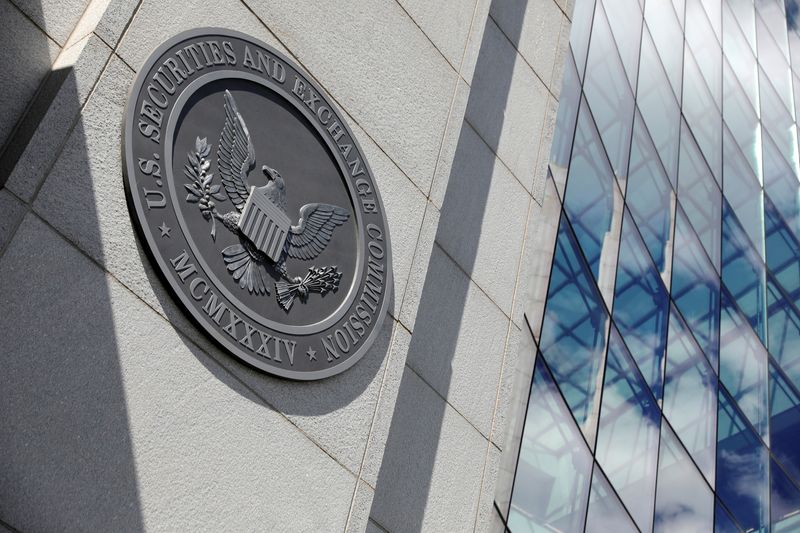(Reuters) - Money market funds are set for a reprieve on "swing pricing" when Wall Street's top regulator votes on Wednesday to help control systemic risk in the money market and large liquidity fund sectors, Bloomberg News reported on Tuesday.
Swing pricing involves adjusting a fund's value in line with trading activity so that redeeming investors bear the costs of exiting a fund and do not dilute remaining investors.
The U.S. Securities and Exchange Commission intends to impose other fees that will affect parts of the $5.5 trillion industry, the report said, citing person familiar with the matter.
The five-member commission will vote on a 2021 proposal to boost the resiliency of money market funds, which required a taxpayer bailout at the start of the coronavirus pandemic.

It had initially proposed imposing a swing pricing rule to discourage hasty withdrawals in times of stress, but the proposal drew strong industry objections.
Asset managers argued it would be operationally challenging, impose excessive costs on fund sponsors, and reduce daily liquidity for investors, potentially killing off some popular products.